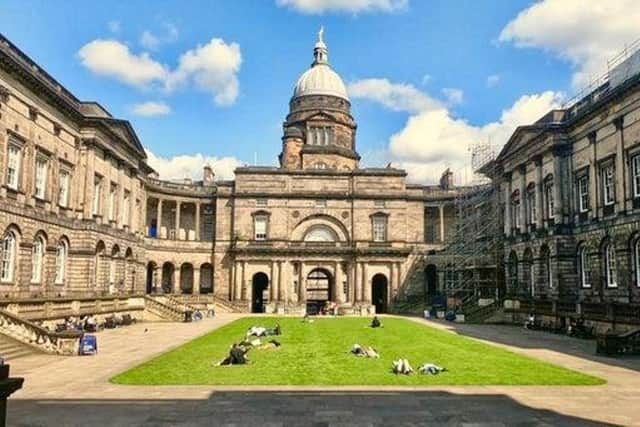Edinburgh University academic cleared of wrongdoing refuses to return to teaching until complainants are 'challenged'
Social anthropology academic Dr Neil Thin paused his teaching at the university for eight weeks during an investigation by the university, over claims that he had discriminatory views.
Students also claimed that he penalised those who challenged his views, allegedly circulating an online form to encourage other students to speak out about the lecturer.
Advertisement
Hide AdAdvertisement
Hide AdHowever, the university earlier this month confirmed the complaints had not been upheld. Some of the students who posted on social media about Dr Thin were also investigated, but the complaints were also not upheld.


Dr Thin said he needed assurances before he would consider returning to lecturing, saying he had not had any mediation, or attempts to challenge the students.
He said: “The university basically think I can go straight back into teaching.
“I have told them it is not something they can realistically ask me to do when they haven’t challenged the students who have destroyed my reputation through online attacks.
Read more: Academic under investigation for ‘offensive tweets’ is cleared
“They cannot expect me to go back among the same people with no attempt at mediation, no challenge, no telling them off, no use of the university’s social media and equality and diversity policies.”
Dr Thin said he believed the message the university was sending to the students over their behaviour was not a good example.
He said: “The message the university is sending out is that the students can do exactly what they like and we are too scared to challenge them. That’s a terrible way of educating students.
"They will go out into the world and get the sack the first time they do something like that. I don’t want to ask for penalties, but I do want the students to be challenged over their conduct.”
Advertisement
Hide AdAdvertisement
Hide AdIn some online comments about him, Dr Thin, 60, was branded a “rape apologist”, a “scumbag” and a “crusty old man”.
A university spokeswoman said: “The university cannot comment on the detail of individual cases. In such instances, we would of course offer support to those affected so that collectively a constructive way forward can be found.”
A message from the Editor:
Thank you for reading this article. We're more reliant on your support than ever as the shift in consumer habits brought about by Coronavirus impacts our advertisers.
If you haven't already, please consider supporting our trusted, fact-checked journalism by taking out a digital subscription.
Comments
Want to join the conversation? Please or to comment on this article.